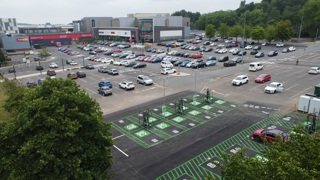Matthew Walters, head of consultancy and customer data services at LeasePlan UK
Last week, Grant Shapps introduced an even earlier date – 2032 - into the mix for the ban of petrol, diesel and hybrid vehicle sales.
Whilst we fully support plans for the UK to hit zero emission targets as soon as possible, we also want to make clear the need for clarity around the Government’s plan to support the necessary switch to electric vehicles.
We already know that organisations that want to make the switch to electric are putting in place the structure to do so. They are already pursuing the market for the vehicles that suit the requirements of their businesses and of their drivers. So, what we now need clarity on, is the support that Government is going to offer to get us there.
The hope is that we will see this in the budget, following Boris Johnson’s proposed £3 billion investment towards infrastructure to prepare for the ban. But we need a clearer understanding of what money is going to be available, and where it will be spent.
In particular, there must be an infrastructure upgrade of network operations, and we need to be sure that the grid is ready for a huge influx of charging points.
At the same time, we need to see a targeted installation of charging points in locations where they are needed the most, not just along the busiest motorways.
Furthermore, we need to make sure that we focus on upgrading our existing home power supply structures to allow for the most powerful and modern home chargers to be installed in every single home.
Ideally, all new build homes should be constructed with charge points and solar panels as standard. This would help to meet the demand that will undoubtedly arise when the sale of ICE and hybrid vehicles becomes unlawful.
And it’s not just homes that need to be reinforced; our workspaces also need to be supported in order to cope with an electric-only future.
For example, businesses who want to install office charging points to support their employees in making the switch need to see the cost off set or incentivised.
Whilst grants and 100% first year capital allowances are available, there is no support to assist companies with any upgrade to the incoming supply. A cost which can be anything up to £500,000.
Ultimately, we know that corporations and organisations are ready to become more sustainable and adapt to electric vehicles, but without a clear plan and any direction from the Government, proposed deadlines are ultimately meaningless.



















Victoria Rose - 24/02/2020 12:55
Interesting to read 'all new build homes should be constructed with charge points and solar panels as standard', but what provision for those of us who have already grasped that stinging nettle and paid (or in my case, are still paying) for solar panels, in a bid to do our bit for the climate ?